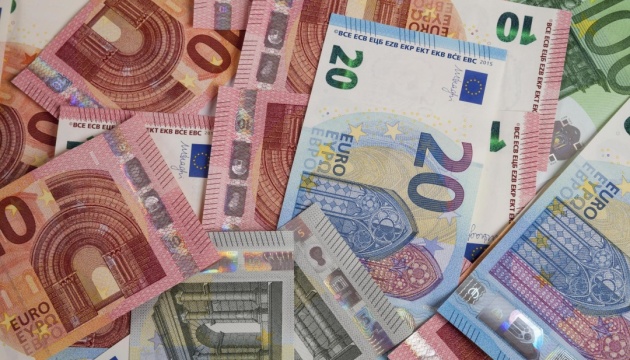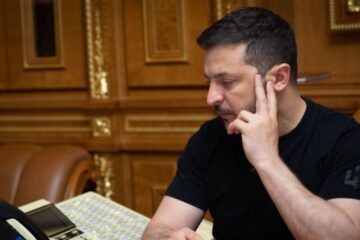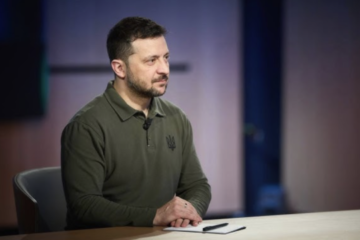
The Ministry of Foreign Affairs of the Netherlands confirmed that the government has frozen Russian assets worth EUR 97.2 million, which is far below the previously reported EUR 660 million.
This was stated by the Ministry of Foreign Affairs of the Netherlands in a comment to an Ukrinform correspondent in The Hague.
“As of July 1, 2024, the total amount of privately frozen assets in the Netherlands amounted to €97.2 million. This is significantly lower than the €660 million that was reported to the House of Representatives in January as the total amount of frozen assets after the first sanctions were imposed following Russia’s invasion of Ukraine,” the Ministry of Foreign Affairs of the Netherlands noted in a comment to Ukrinform.
The Ministry of Foreign Affairs of the Netherlands also emphasized that the issue was already reported to the Dutch parliament on October 4, 2024
Thus, in January 2024, the Dutch parliament announced that the total amount of frozen Russian assets would be EUR 660 million, but by July 1, 2024, only EUR 97.2 million had been frozen, with the rest no longer subject to freezing.
“A significant amount of frozen funds was released and is no longer subject to freezing. Due to the confidentiality of the information, the involved parties are anonymized,” the Ministry of Foreign Affairs of the Netherlands said.
The Ministry of Foreign Affairs also stated that a significant portion of this amount belongs to two companies. EUR 230 million of Company No. 1, the name of which is not disclosed due to confidentiality, was not subject to freezing because the company no longer had connections with sanctioned Russian owners.
“Sanctioned owners are now sufficiently distanced from Company No. 1 and no longer have access to its assets. Therefore, the freezing requirement is lifted,” the Ministry of Foreign Affairs of the Netherlands explained.
In May 2024, the Bureau for Investment Assessment in the Netherlands (BTI) recognized that Company No. 1 and some of its affiliated companies are no longer subject to the sanctions measures imposed under the European sanctions regime against Russia.
“Thus, the freezing requirement no longer applied to the EUR 230 million,” the Ministry stated.
It is worth noting that the Bureau for Investment Assessment in the Netherlands (BTI) is an agency that conducts investment checks and assesses their compliance with national laws, particularly concerning sanctions and restrictions that may be applied to specific individuals or entities. In the case of sanctions, BTI determines whether certain investments or businesses fall under the EU sanctions, particularly with regard to Russia and other sanctioned countries.
Regarding Company No. 2, the unfreezing of funds occurred due to exceptions related to unfinished payments and the removal of sanctioned owners.
“In March, July, and August 2022, the bank reported the freezing of funds related to Company No. 2. These freezes concerned funds amounting to approximately €200 million. Company No. 2 has the same sanctioned ultimate beneficial owners as Company No. 1. In August 2022, the Minister of Finance authorized the release of these frozen funds to pay interest and settle debts to unsanctioned banks. The Minister of Finance has the authority to grant exemptions for financial transactions or to release frozen funds if the European sanctions regime permits. In particular, exemptions may be granted for the release of frozen funds to settle ‘old debts,’ provided that these funds do not reach sanctioned individuals,” the Ministry explained.
The BTI also confirmed in June 2024 that Company No. 2 is no longer subject to EU sanctions.
“This happened due to the restructuring of the previously mentioned Company No. 1, as a result of which Company No. 2 became a fully owned subsidiary of Company No. 1 and was thus sufficiently distanced from the sanctioned owners. Therefore, the freezing requirement no longer applied to these funds,” the Ministry of Foreign Affairs of the Netherlands said.
Additionally, they noted that, apart from Company No. 1 and Company No. 2, there were several similar cases with smaller amounts.
As Ukrinform reported earlier, in an interview with the agency, Dutch Ambassador to Ukraine Alle Dorhout reaffirmed the Netherlands’ commitment to the issue of freezing Russian assets, noting that the country is using windfall profits off these assets to support Ukraine.
At the same time, he noted, unlike in Russia, in the Netherlands “the rule of law is very important”.
“So, when you freeze assets, you need a very sound legal base. And if a judge finds that the legal base is not sound enough then unfortunately, we have to let go, or look for another way to freeze these assets,” the ambassador told Ukrinform.
Source: Dutch MFA confirms only EUR 97.2M of Russian assets frozen in country



